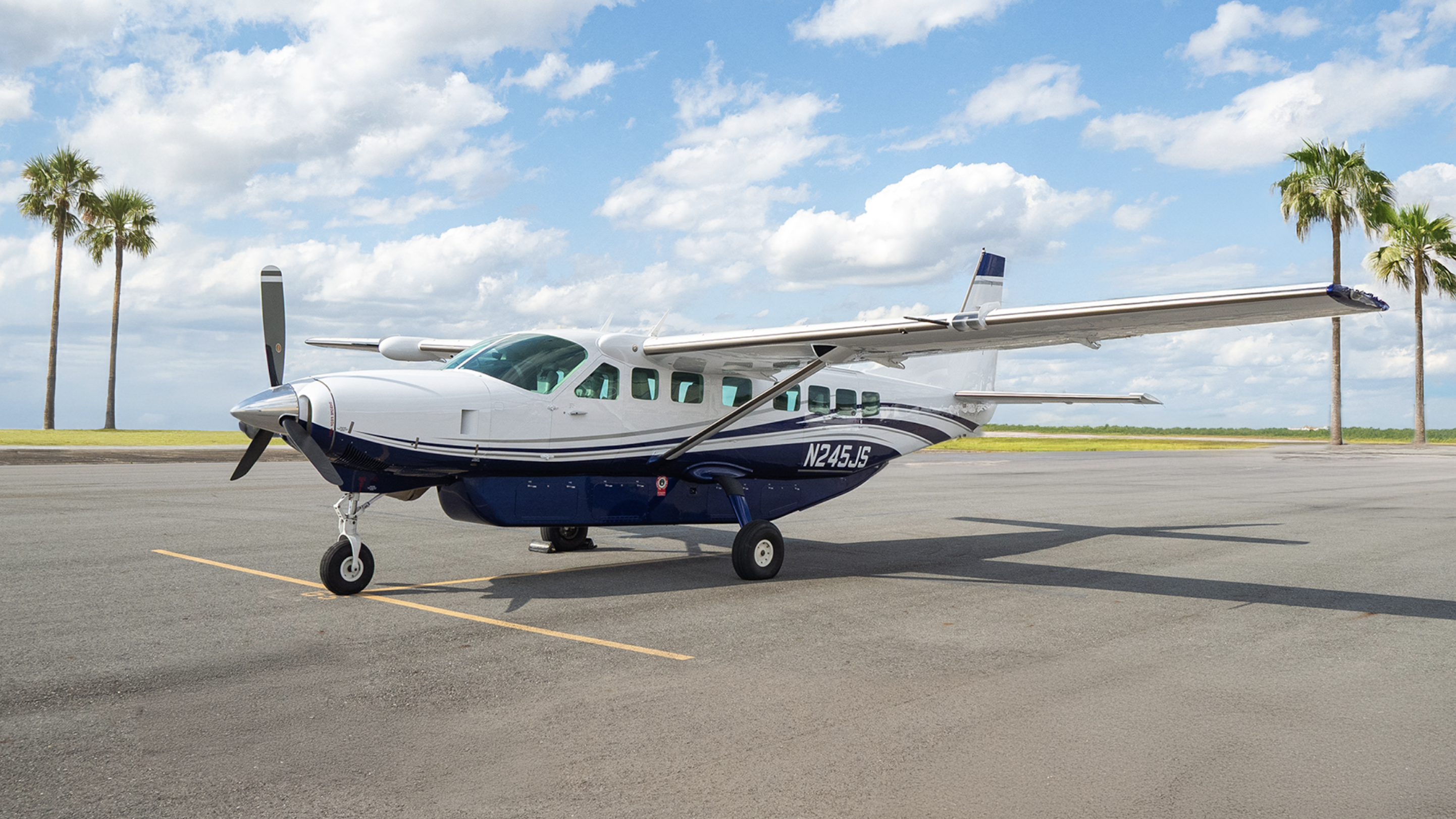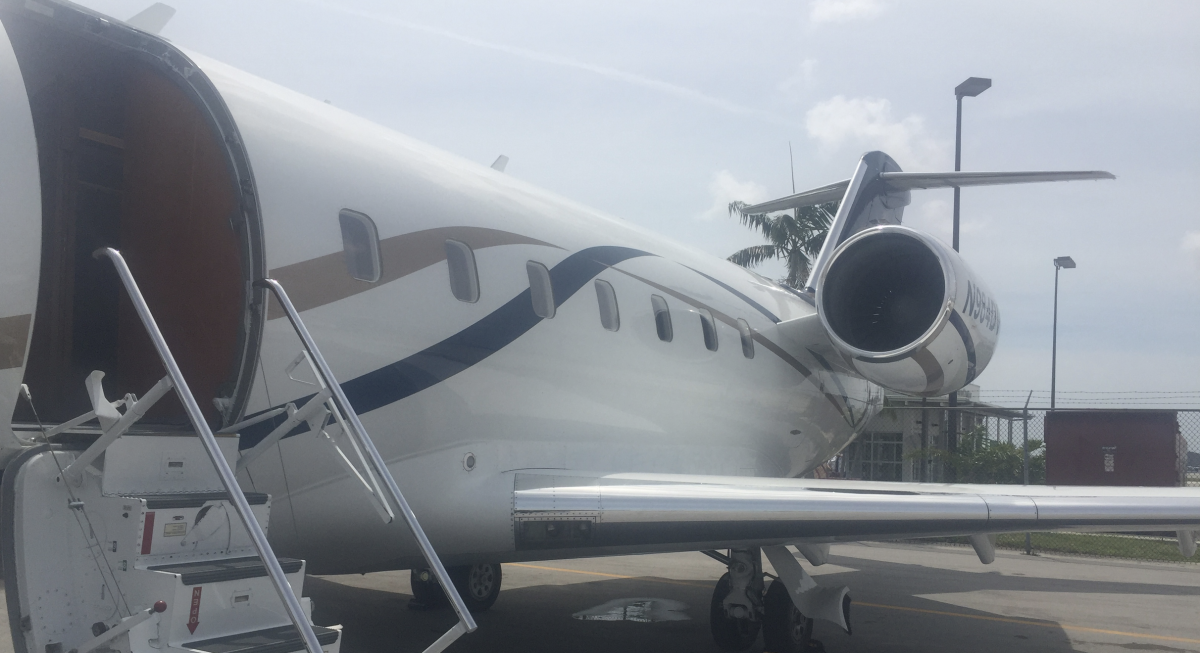

The newest legislation to provide ongoing COVID-19 relief is estimated to have $15 billion for the airlines. According to a spokesperson for the National Business Aviation Association, that should incorporate Part 135 private jet operators and other companies related to business aviation.
(Updated Dec. 22 @ 7:22 am – A full copy of the HR 133 – Consolidated Appropriations Act, 2021, can be downloaded at the end of this story.)
“There is no set aside for business aviation or Part 135 operators under the air carrier payroll support program. The high-level summaries of the current relief measure we have seen indicate that an additional $15 billion will be provided for air carrier payroll support. As was the case under the CARES Act, the vast majority of these funds will likely go to the largest airlines. However, as defined by Congress, “air carrier” can include Part 135 operators, which are also eligible to apply for payroll support,” Dan Hubbard, a spokesperson for NBAA, tells Private Jet Card Comparisons.
In terms of qualifications, Hubbard adds, “We haven’t seen the legislative language yet, but based on what we have heard, the program will be administered by the Treasury Department as it was under the CARES Act. An earlier draft did have new requirements regarding recalling employees that had been furloughed if a company were to receive payroll support.”
Various reports indicate applicants need to show their revenues were at least 30% lower, although the period was not specific. It was also not clear if these restrictions will be related to air carriers.
Hubbard says, “These Part 135 operators often serve airports without airline service, provide emergency medical transportation, and have been critical in COVID relief efforts.”
However, Hubbard cautions his comments so far are based only on a preliminary and ongoing review of the legislation.
The initial CARES Act drew criticism from both outside the industry as well as private aviation’s biggest player.
Patrick Gallagher, the president of NetJets, recently said, “With the rising tide apparently lifting all ships in our industry, I’m hopeful as a taxpayer that some of those CARES Act funds get paid back. We see our competitors touting their recent success and return to pre-pandemic levels. I’m glad that those funds were available to keep people employed, but many of these companies today are out doing bolt-on acquisitions and spinning off new ventures. Personally, I am hopeful they are also paying back the tens of millions of dollars that they took to make payroll just a few months ago.”
It is one of only a few large operators to eschew CARES Act money,
Island Express Helicopters received over $6000 in funds. It’s the company that flew Kobe Bryant on the flight when he died.
JetSuite, which laid off nearly all its staff, received $6.5 million in October after emerging from Chapter 11. Members of its SuiteKey jet card program lost over $50 million in flight credits. Its sister company JSX, formerly JetSuite X, received $8.9 million in May.
Needless to say, Gallagher’s comments haven’t necessarily welcomed, although many competitors have declined to speak publicly about the funding they received.
Not so with Jim Segrave. The chairman of FlyExclusive tells us, “Fractionals bill their owners for their pilots in the monthly management fees they charge. They make the majority of their money selling planes – operationally they rarely do that well. So flying less does not hurt them. And since fractional owners own the planes there is no cost capital to the management company if they fly or sit on the ground.”
He added, “In our case we own or triple-net lease all of our planes. The pilots all only work for us. We do not get to bill anyone for our pilots or staff when the planes do not fly. No management fees are being charged. And since we own/lease the planes we keep having to pay for them when they are sitting on the ground. And we have to pay for the maintenance.”
[Find which Jet Cards guarantee Wifi today by becoming a paid subscriber]
Segrave also put a distance with management companies that manage private aircraft on behalf of their owners. He said, “I agree with NetJets that they should not have taken any support funds. Neither should management companies really. (It’s) comparing apples and oranges between them and companies structured like flyExclusive. Those of us who are not billing others for our staff certainly needed the support…We legitimately had 300 families security in the balance the way we were structured.”
Segrave had previously credited the CARES Act for saving nearly 300 jobs at its Kinston, North Carolina base. The city has a population of approximately 20,000.
Hubbard reeled off a number of examples of how private aviation has been providing critical support during natural disasters. “Manufacturers retooled their production lines to produce ventilators, face masks, and other urgently-needed medical and personal protective equipment (PPE), while industry support companies such as fixed-base operators (FBOs) and maintenance providers organized relief flights and PPE donations. Companies repurposed their 3D printers to manufacture face shields to protect medical workers on the front lines fighting the virus. Flight-support companies have also donated their mission-planning services to pilots and operators supporting COVID-19 relief flights.”
He noted, “Companies and entrepreneurs relying on business aviation to support their operations also kicked in for the relief effort. For example, a pool-supply company in Ohio pivoted from its usual manufacturing of pool liners and other products. Instead, it produced face masks for hospitals and first responders. Other companies are using their business airplanes to deliver medical supplies and specialists to the front lines. One Idaho business (used theirs to help) Navajo Nation’s fight against the pandemic.”
If you own a craft beer brewery, good news. The Associated Press reports the new legislation “extends a variety of expiring tax breaks, including lower excise taxes of craft brewers and distillers. Renewable energy sources would see tax breaks extended, as would motorsport facilities and people making charitable contributions. Business meals would be 100% deductible through 2022.”
In terms of extending the Federal Excise Tax holiday, due to end on Dec. 31, Hubbard says there is no final word. However, the group had previously said that’s unlikely. “With the way the current stimulus discussions are progressing, I think the chances of the FET suspension being included at the last minute are low. I just don’t think there is an appetite for engaging in tax policy debates after the fallout from some of the tax changes made through the CARES Act,” said Scott O’Brien, senior director of government affairs at NBAA.
O’Brien noted at the time, “There is no discussion on Capitol Hill that I am aware of to extend the FET suspension beyond the end of this year. This round of COVID-19 relief negotiations that has stretched on for many months has really not addressed tax policy as was done in the CARES Act.”